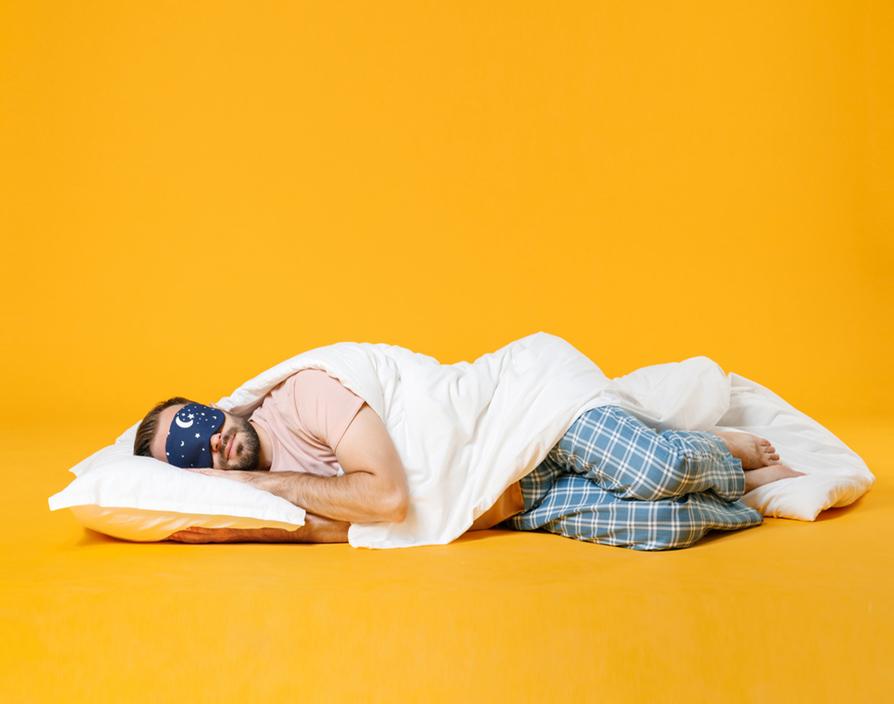The World Health Organisation has declared that sleep deprivation is now an epidemic. What’s this got to do with running a business? We know that fewer than 60 per-cent of businesses survive beyond three years. It takes grit and hard work to succeed. Unfortunately, 40% of business owners sacrifice sleep in order to succeed. They work long hours, burning the midnight oil, and sleeping for only four to five hours per night.
But what’s the knock-on effect? Research by Stanford University discovered that business owners who slept for less than six hours, for two consecutive nights, experienced decreased performance levels for the next six days. That’s six days of plummeting performance and productivity because of a lack of sleep. And productivity determines your profit.
Therefore, a good night’s sleep must become an integral part of your business strategy, as well as an integral part of your overall wellbeing. So how can you achieve this? Firstly, you need to capture your sleep data in the same way as you accumulate business data.
Discover your productivity peaks to your natural rhythms. What is your genetic Chrono type? Are you programmed to be a morning lark or a night owl? So capture daily data that informs you how long you have been asleep and how deeply you’ve slept.
You may need to make changes to your lifestyle, so you can optimise your best sleep patterns. This may be unique to you. But, by tracking it precisely, you can work out your productivity peaks. This will enable you to understand how you are designed – and without requiring any guesswork.
You’re a busy business owner and don’t have time for trial and terror. So follow facts not fads – and facts that are personal to you. This is the essence of data-driven health. If you’re similar to most business owners, focused on your day-to-day duties, the stress of striving for success means there always seems to be too much to do and not enough time in which to do it.
So it’s easy to give up on sleep, allowing yourself more time to get things done. But to stand out from the crowd, you need great ideas. You need innovation and ingenuity. It all comes down to your brain waves. When you’re awake, your brain is ruled by beta waves and you’re focused on what you have to do for the next few seconds, minutes or hours.
When you’re asleep, your creativity perks up and bolsters your brain waves. Most business owners sacrifice sleep because they consider it to be a passive state. But, actually, it’s a very active state. So tap into this to your advantage to unlock your creative genius for even greater business success.
Consider this approach:
1) As you fall asleep, ask yourself the question you’ve been wrestling with all day. You’ve probably heard the phrase ‘sleep on it.’ So do that.
2) Read before you go to sleep. This gives your mind something to work on while you’re asleep.
3) Keep a notebook and pen by your bedside. Then write down your dreams as soon as you wake. Sleep stimulates your mind to make non-obvious connections. This is the basis of creativity: Connecting ideas, events and memories that wouldn’t normally fit together. Some of the most revolutionary leaps in human progress have been achieved this way.
Did you know the periodic table of chemical elements was developed by Russian chemist Dmitri Mendeleev, as he slept on February 17th, 1869? While dreaming, he noticed this table where all the elements fell into place. And when he woke up, he immediately wrote it down.
If you’re struggling to get to sleep, here are five S-M-A-R-T rules you can follow:
S is for Serotonin: Serotonin and melatonin are two neurotransmitters which help control your sleep-wake cycle. Tryptophan (amino acid) acts as a building block for serotonin and melatonin. This means eating foods that contain greater levels of tryptophan will induce sleep. If you wish to invite more tryptophan into your life, reach for foods such as turkey, chicken, fish, nuts, seeds, tofu and dairy products. And here’s a tip: Pair these tryptophan-rich foods with a small amount of carbohydrates for better absorption.
M is for Magnesium: This is a mineral that deserves more attention with regards to sleep. Magnesium, and more specifically magnesium glycinate, activates your parasympathetic nervous system, which is all about relaxation. Having enough magnesium in your system promotes better sleep. You can find magnesium in foods like leafy greens, nuts, seeds, legumes and whole grains. And if you want an extra boost, consider taking a magnesium supplement before hitting the hay.
A is for Alpha Wave Music: Alpha waves are brainwave patterns associated with relaxation and meditation. This is the kind of state your brain needs to adopt before going to sleep. You can tap into these waves by listening to music or sounds that have alpha wave frequencies of around 8 to 12 Hz. Your brain follows the beat and mimics this wave activity. Seek out playlists or apps that provide alpha wave music or binaural beats. These are designed to synchronize your brainwave activity and help you unwind.
R is for Relaxation: Progressive Muscle Relaxation is a technique that involves tensing and then releasing your muscle groups, starting from the top of your head and working downwards. Holding tension for 10 seconds, then releasing and relaxing for 20 seconds, activates your parasympathetic nervous system to create restfulness.
T is for Temperature: Were you aware that your body temperature needs to drop to enable you to fall asleep? The good thing is you can help this process by treating yourself to a warm bath or shower before bedtime. The warm water raises your body temperature temporarily, but as you cool down afterwards, your body recognises it’s time for sleep. Aim for a drop of between one or two degrees. And speaking of temperature, make certain your sleep environment is somewhere between 15 and 19 degrees Celsius (that’s around 60 to 67 degrees Fahrenheit).
Remember, these S-M-A-R-T rules are here to guide you. However, everyone’s sleep journey is unique. By using personalised sleep data, you can target your sleep actions more precisely. Find out what works best for you.
Share via:









































